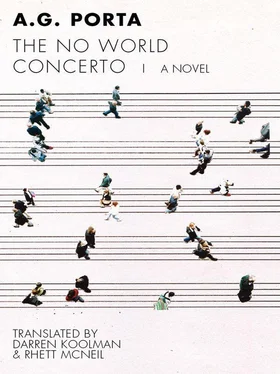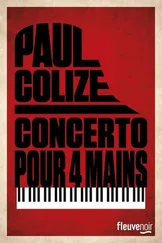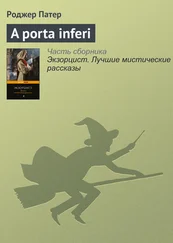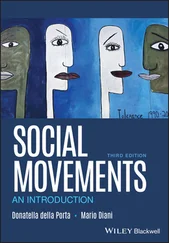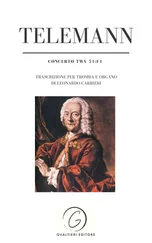They’ve called him a beacon, the creator of the modern world, and the inventor of the human. His characters are kings, princes, soldiers, clerks, impostors, witches, murderers, et al. He limns the whole spectrum of human society — the high and the low, the wicked and the good: specters of the No World, as the girl would say. He shows us heaven and hell exist within us and without, and teaches us that appearances can often be deceiving. The dramatist par excellence surpasses every other writer we know. His wit, energy, and scope of invention bespeak a man of illimitable intellect and boundless creative power. He’s the greatest comedian, the most sublime tragedian of them all, and as someone once said of his characters, the secret to their depth, their humanity, is their ability to overhear themselves, and in doing so, to change. For all these reasons, therefore, he has to be read. In the end, he gave up poetry and the theater, dying three years later. Perhaps of unemployment. There are people who can’t bear not having a job, the screenwriter says. Later, in the middle of the night, he asks the girl to read to him some fragments from her diary. She’s thought about giving up writing; if she hasn’t done so yet, it’s because only in writing does she feel alive. She opens her diary and leafs through its pages, chooses a passage about her walk back to the foosball bars; then one about loneliness, about her feeling like she’s a writer although she doesn’t write; and another about the futility of trying to evade her extraterrestrial pursuers. The screenwriter listens to her voice, deems it firm, assured, if slightly monotonous, and looks at her face, the movement of her lips, the way her hands grip the diary. She once wrote that everything whirls around her at great speed, that her rehearsals are only a game, her writings only a game, even her life’s only an elaborate game in which events seem to succeed each other with an inconceivable rapidity, all her arguments with her mother and the young conductor, all her disappointments in love, are just part of this elaborate game. She’s written that everyone pronounces her name with a “ka,” and that this is a way of giving meaning to something that has no meaning. It’s like being on drugs all day, she thinks. Perhaps she’s been searching high and low for the face of her cousin Dedalus. Perhaps she hopes to see him again. The screenwriter believes there are secrets we should keep to ourselves, that they shouldn’t be confessed, except perhaps to a diary. The girl reads aloud, her head pillowed against his graying chest, speaking of her father, of the neighboring country’s capital, and of herself. She feels more like a writer than ever, she says, and that she often imagines discovering her mother in flagrante with a secret lover. She turns on the TV and flips through the channels. On the news, there’s talk of other places in the world where people don’t know the game exists. She turns the TV off and goes to the piano. She wants to set her performance apart from everyone else’s. Perhaps she’s found a way to do so by slowing it down. But she can’t really trust herself after taking so many pills — a strange distrust, since the young conductor insists the pills will enhance her emotional states, and raise the level of her performance to near genius, which will compensate for the foibles of youth and inexperience. There aren’t too many hours left until concert at the church in front of the writers’ café, and there isn’t enough time for her to find a way to make her performance unique. After thinking about it, though, she believes she’s already found a way, but the young conductor and brilliant composer aren’t satisfied with it. Yet, she shouldn’t doubt herself. She lies down naked at the foot of the bed and writes again until she falls asleep. She awakens to the faint light of dawn streaming in the window. She dreamed she was driving around in a yellow convertible, and she recalls how it gleamed, the way things only do in dreams, and the way it seemed to glide so smoothly, silently along through the outskirts of the city, with the young conductor in the driver’s seat, and the brilliant composer sitting beside him, while she was in the backseat standing up, reciting a poem, playing the part of the cosmic clown. On the sidewalk, people had stopped to listen to her, and she saw the face of her cousin among them. She then asked the young conductor to stop the car, but it seemed as though the words never reached his ears, and Cousin Dedalus vanished among the pedestrians, who all dispersed, continuing on their way to nowhere in particular, dropping into the margins of her dream. It seems strange to her now that the car drove so smoothly, as if gliding over a thin layer of oil, strange that she noticed the one face among so many others. She’d like to decipher the meaning of the dream, but she can only guess that it must have something to do with the concerts and her obsession with finding her cousin. After a while, feeling a little weary, she stops reading from her diary and gets out of bed. The screenwriter smokes a joint as she gets dressed. Will you come back tomorrow? he asks. Tomorrow’s opening night, she says. No it’s not, he says, tomorrow’s just a momentary blip in the boundless expanse of time; right now, tomorrow’s but a barely perceived premonition in the brain — not a psychic premonition, but a forecast, as of the weather, and the weathergirl’s frequently wrong. She takes the joint from between his fingers and takes a deep drag before returning it. She goes over to the window and opens the curtains to looks down on the deserted streets. What do you see? the screenwriter asks, the question half-muffled, his face half-buried in the pillow. She doesn’t answer. She finds it difficult to describe the figure she sees lurking almost imperceptibly in the shadows. It’s the same figure she sees every night, like having a recurring dream. Maybe she’s only imagining it. Maybe it’s nothing.
Still lying in bed, the screenwriter realizes he’s commenced the same ritual as always: remaining in bed a long time, staring up at the ceiling, and listening to the sounds from the street below. He slept very little, and he suspects the girl is still floating around somewhere in his unconscious. He only vaguely recollects what he’s written. He gets out of bed to freshen up, has a look at himself in the bathroom mirror, takes a deep breath, and makes his way down to the canteen. The elevator takes its time arriving. He gets the feeling he may be better off taking the stairs. He’d do it if it wasn’t for his damned limp. He grips his cane impatiently and knocks it against the floor a couple of times, the strokes, muted by the carpet, rendering the act meaningless. He doesn’t like the muffled thud, he says to himself, because it probably unleashed a cloud of dust mites that are now colonizing his socks and the hem of his pants. He passes some time in the lobby reading the newspaper. He reads something about a country too far away for him to care about, peruses the personal ads, and encounters an article about the queen of porn that says she’s buried in one of the local cemeteries. He remembers there are many cinematic luminaries buried there: actors, actresses, directors, and of course people from other professions who neither matter nor warrant a visit. He went there once with a friend. He remembers her clearly: a woman with whom he was romantically involved some forty years before, and with whom he corresponded for quite some time. He reckons it’s been a decade since he last heard from her. He doesn’t recall the reason they went to the cemetery; he doesn’t recall when they started writing to each other, or why their correspondence came to an end. There’s a notice about the Little Sinfonietta’s concert in the events section. The screenwriter hurriedly finishes his breakfast and heads out. A cemetery’s quite a cinematic location. Maybe he’ll be able to set some of his scenes there. On the way, he considers some of the possibilities for the location, but he struggles to focus, and his ideas seem to dissipate before assuming any definite shape. Near the entrance, a map points to the sites of celebrity graves. He makes a rough sketch of it in his notebook, marking the ones he plans to visit. The tomb of the inventor of the cinematic spectacle is nearby: although he doesn’t consider him the most alluring figure, the screenwriter decides to pay him a visit nonetheless. He struggles up the hill with his limp, and then has a hard time finding the grave among so many anonymous ones in a sort of narrow embankment. The history of film is short, he thinks. The inventor of the cinematic spectacle died fifty-six years earlier, and his tomb is in a terrible state, not unlike all the others around it, facing the wall that separates the cemetery grounds from the street and the apartments on the other side. It seems sad and pitiful. He then wonders about people like himself, the kind who won’t go down in history, who’ll rest in unvisited tombs. He strikes his cane forcefully against the ground while making his way back to the main footpath. He’s lost the strength that got him here, replaced it with sadness, and although he continues walking, he does so without a destination in mind, and soon begins to flag. Some small pebbles and rocks have been placed haphazardly, or so it seems, atop some of the gravestones. There are people leaving postcards or small scraps of paper with messages for the dead. A few are ambling casually among the graves, some may be family members, others tourists, and there’s no telling about the rest. A woman reads while sitting on the tomb of a great writer. The screenwriter supposes it’s one of that writer’s great works, although he’s too shy to approach her and corroborate his suspicion. He’s tired from hobbling along under the hot sun, so he sits down in the shade beside a marble headstone and wipes his forehead with a handkerchief. This part of the cemetery is more modern. He reads on the tombstones the names and dates of some of the deceased. He could use them to conceive some fascinating stories: a young man dead at twenty-five, and then only a year later, the death, at forty-eight, of what appears to be his mother. It really makes you think.
Читать дальше
